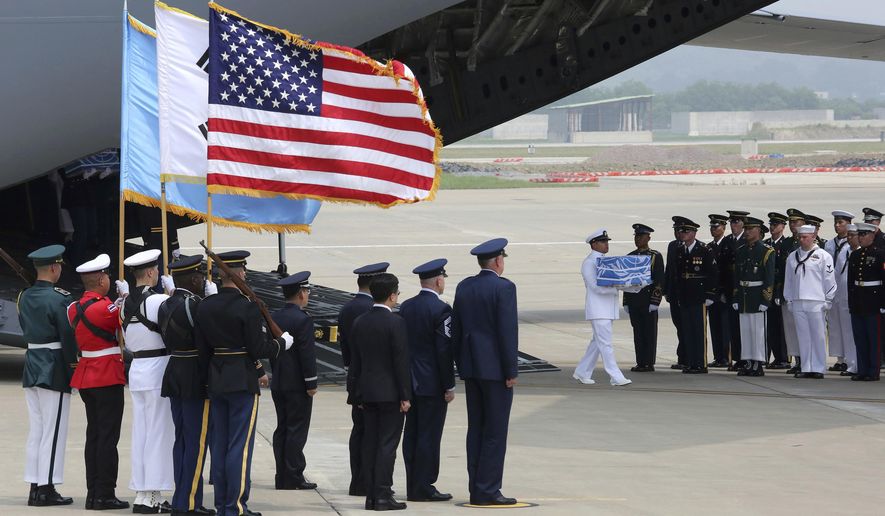
PYONGYANG, North Korea (AP) - North Korea[1] made good on another promise to U.S. President Donald Trump[2] by returning dozens of sets of remains of American GIs killed during the Korean War. But it expects something in return - a peace treaty, or something very much like it.
Until that’s on the table, real progress toward denuclearization will likely have to wait.
North Korean leader Kim Jong Un agreed in his summit in Singapore with Trump[3] last month to resume returning remains.
But the North chose the most symbolic day to actually turn over the first batch. Friday was the 65th anniversary of the end of the 1950-53 Korean War, which concluded not in a formal peace treaty but in an armistice agreement that was supposed to be temporary but has stayed in effect ever since.
That, to North Korea[4], says it all.
North Korea[5]’s demand all along has been that improved relations between the two countries must begin with the creation of a stable peace on the Korean Peninsula, not with the unilateral abandonment of the North’s nuclear weapons that the Trump administration has been pushing for. North Korea[6]’s logic is that both sides need to take simultaneous action to gradually improve the security climate.
Denuclearization, if it will come at all, will only come once that hurdle has been cleared.
“The adoption of the declaration on the termination of war is the first and foremost process in the light of ending the extreme hostility and establishing new relations between the DPRK and the U.S.,” the North’s Korean Central News Agency said in a statement on Tuesday, referring to North Korea[7] by its official name, the Democratic People’s Republic of Korea.
“Peace can come only after the declaration of the termination of war,” it said....
To keep the ball rolling in the meantime, North Korea[8] has announced a moratorium on nuclear tests and long-range missile launches. It has demolished structures and the entrances to buildings on the site of its underground nuclear testing facility in Punggye-ri, and appears to have begun dismantling some of its missile testing facilities at Sohae. It has also returned three Americans who were being held in jail and has significantly toned down its anti-U.S. propaganda.All should be seen as significant, positive steps - certainly when compared to last year, when the U.S. and North Korea[9] were trading insults and threats of nuclear war.But none of the North’s actions so far have much to do with actual denuclearization.North Korea[10] has yet to declare what its nuclear program consists of - how many bombs it has, where they are built - information that must be revealed to Washington before any credible denuclearization process can even begin. The moratoriums could easily be rescinded if Kim chooses to
